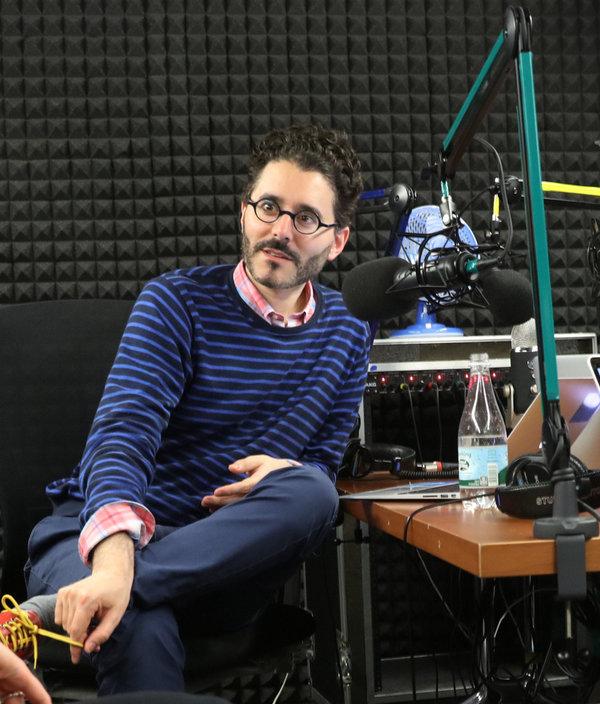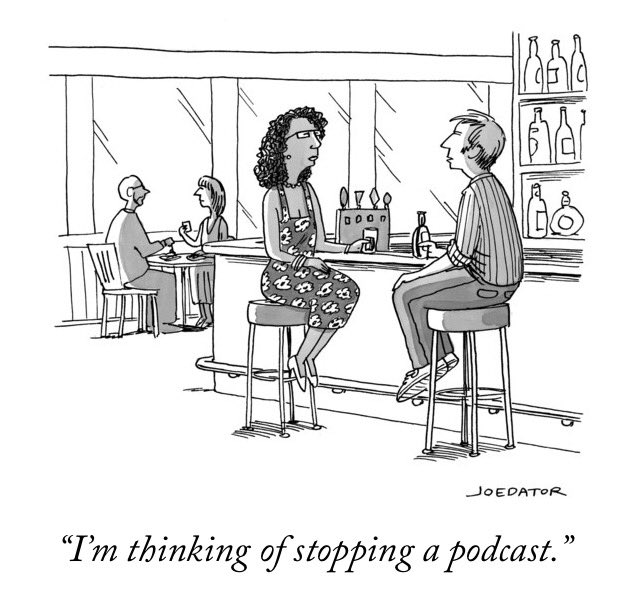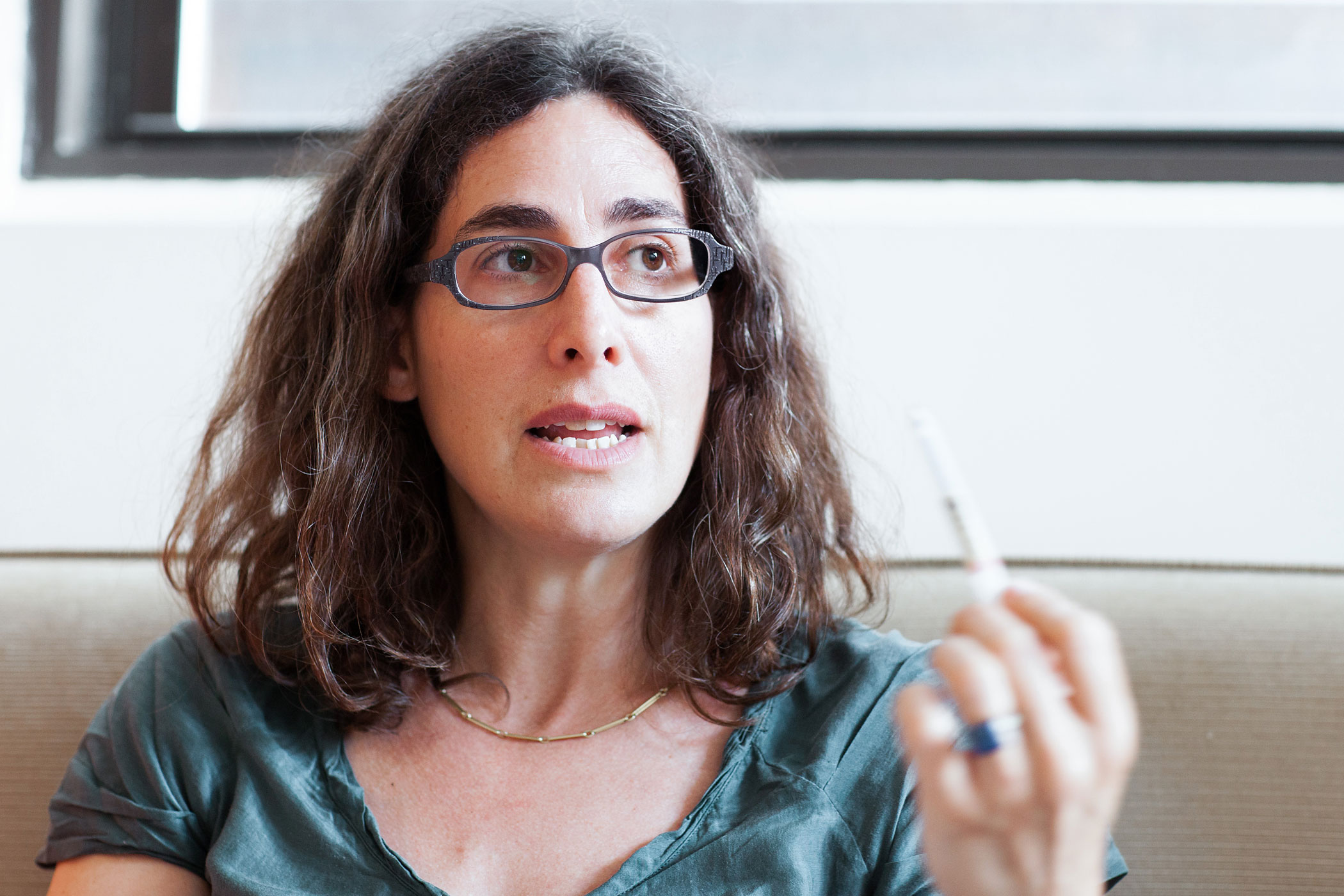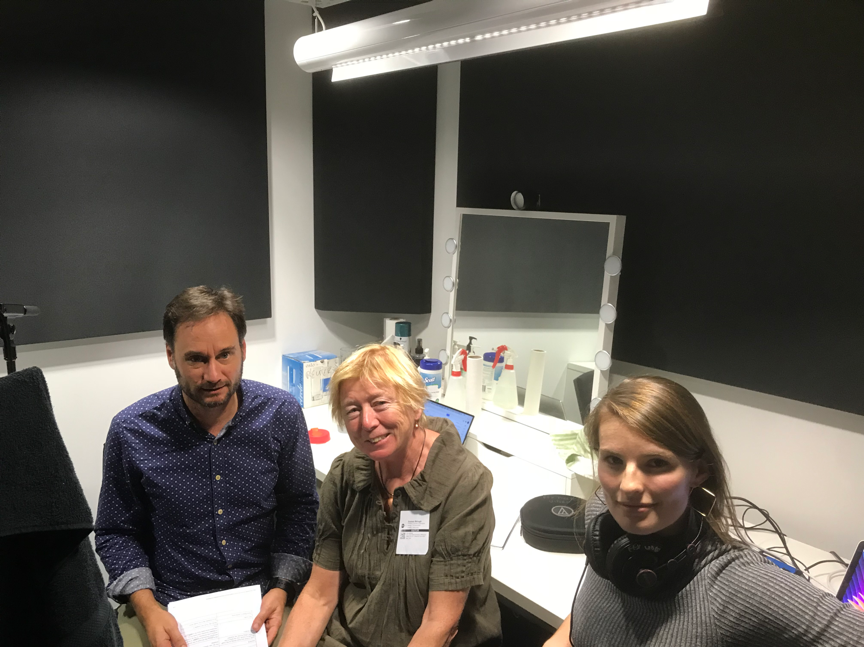Podcasting’s Dirty Secret: Audio Storytelling Takes Art, Craft—and Tons of Time
Siobhán McHugh / University of Wollongong

The other day I opened my podcast feed and pressed ‘play’ on The Daily, awaiting the familiar chords and host Michael Barbaro’s mellifluous intro to the New York Times’ news wrap—only to be rudely surprised. The podcast opened cold, with the actuality of two New York Times (NYT) staff awaiting a Russian in the office foyer. Then a wry voiceover: “From the New York Times, I’m NOT Michael Barbaro. I’m Kevin Roose.”
Roose, the NYT technology reporter, launched into his investigation of a propaganda site, USA Really. Though the report was well researched and produced, I felt cheated. It lacked the magic, mediating ingredient of the affable yet hyper-engaged Barbaro, or Mikie, as I know him from his Twitter handle (@mikiebarb). I gave up listening halfway. Like many others, I’ve come to think of favourite podcast hosts as new best friends—so why is this happening, and what does the podcast boom mean for media studies?
I’ve watched the post-Serial podcast explosion of the last four years with mixed feelings. On the one hand, as someone who has been a committed audio storyteller since the early ’80s, I felt vindicated—at last, audio was being celebrated, not just as the significant cultural force that radio has always been, but as something cool. People who had never listened to a radio documentary I might have spent a year making, or shown the slightest interest in the form, were suddenly asking me for my podcast recommendations. Even weirder, after they’d binge-listened, they’d tag me on social media, wanting to sound off about this character or that moment, and how much it sucked them in or incensed them or made them cry. Yep, I’d go. That’s the affective power of sound.
“But there are no pictures, and yet I feel like I’m there, like I know those people,” they’d say. “Yes,” I’d reply. That’s because audio is not prescriptive, doesn’t harness you passively to a screen—it bounces off your memory, engages your mind, your senses and your imagination all at once and makes YOU create your special meaning, thereby becoming invested.
That’s not an exactly new concept and nor is the vaunted intimacy of audio—Franklin D. Roosevelt was onto it in the 1930s with his “wireless radio chats.” But it seems to surprise born-again podphiles—because, I believe, the perceived idea of audio, even, or especially, among journalists from other media, has long been that it’s simple: unlike television, it’s “just talking.” But audio is far more than video-without-pictures. It’s a thing.

The success of Serial (340 million downloads of the first two seasons) forced people to acknowledge the power of audio stories, but most still fail to consider the immense time, skill, and yes, artistry, it takes to do them well. Culture vultures will murmur appreciatively about the innovative tracking shot in the film Children of Men or the symmetrical imagery of Wes Anderson. They will celebrate masterly theatre design or direction. They will readily attend art exhibitions and reflect on the artist’s intentions. They will wade through the literary canon. And they will dissect their musical preferences with expertise and elan.
But the creativity behind the great crafted audio features, documentaries, and works of fiction and non-fiction now paraded on podcast platforms by the thousand—I know there are 600,000 podcasts on iTunes, but I said “great”—that creativity is rarely interrogated, deconstructed, or frankly, understood. The NYT Facebook Podcast Club, for instance, has 26,000 members. Each week they discuss a designated podcast—all the usual suspects have been covered, from Dirty John to Invisibilia. This is “just” fan commentary, but it’s surprisingly low-level as critique. Listeners comment mostly on the content or themes of the show, maybe on the ethics or politics that surround it, but very rarely show an understanding of the audio storytelling art and craft that underpins it.

It was because of that gap, that lack of awareness and articulation of what good audio storytelling is and what makes it so, that I founded RadioDoc Review in 2013. (It was a year before Serial, or yes, I would have called it Pod-something.) Its board is made up of top audio makers and scholars from around the world. It publishes critiques of selected works, written by highly credentialled audio folk: something like having the Coen Brothers review Almodovar. It’s been a revelation to see these authors develop language and concepts that allow us to probe and understand how excellent audio works are built and crafted: the writing; the capture, placement and layering of sound; the use of space and time; and the placement of sound and voice and music in relationship…all these elements have been unpacked and explored. And it’s all free and open access, done as a collective labour of love.
Of late, mainstream outlets such as The Atlantic, Vulture, and the New Yorker have provided thoughtful criticism of the aesthetics of podcasts and the crucial role played by their hosts. Some narrative podcasts, such as S-Town, have consciously extended the form. Others, such as Wrong Skin, in which investigative journalist Richard Baker examines the clash of ancient Aboriginal law and modern culture in Australia, are a departure because an award-winning print journalist has abandoned the page for the ear, in an acknowledgement that podcasts can do things that print simply cannot. [1]

Which brings me back to where we started. A lot has been written about the success of The Daily. What’s less appreciated is how much that also depends on how its team of ten or so audio experts cleverly exploits the audio medium. They add texture and immediacy via archival audio grabs, capture atmospheric meta-scenes and understand that timing is crucial: you can’t freeze-frame audio—it unfolds in real time. A beat between sound bites, an eloquent pause, a reflective music bridge, all change how we as listeners take things in. Thus a phone’s ringing tone builds expectation; when it is picked up, we hear a seemingly unvarnished exchange that establishes the normality of the interviewee, before we get to the topic in hand.
One episode of The Daily opens like this: [2]
Michael Barbaro (MB): Forget the political, forget the legal: for the 65,000 coal miners in the US, this is just about daily life.
ACTUALITY: Phone rings, twice
MB: We called one of them…
Miner: “HELLO?” (open, friendly tone)
MB. …Mark Gray.
MB: “Hey! Is this Mr Gray?” (pleasantly)
Miner: “Yes.” (pleased, affirming tone)
MB: “Hey, it’s Michael.
Barbaro.
From the Times.“
Miner: “Okay.” (more guarded, resigned tone, shallow breaths)
Barbaro: “I think I had the wrong number. By one digit.”
Gray chimes in, his wariness forgotten: “Yeah, I think I GAVE you the wrong number.”
MB laughs appreciatively. “It happens,” he says. Gray laughs too.
Miner: “I’m not used to this number over here (breathes audibly). It’s a Tennessee number and I’ve not lived over here too long (breathing raggedly).”
MB: “So does that mean you have moved?”
Miner: “Yes I moved from Kentucky. I’ve had to move away…”
In 44 seconds (listen here), much has been established. Some of it is overt: MB is interviewing a coal miner, who comes from Harlan County, a district famous from the eponymous 1970s documentary about a bitter strike there. Non-verbal meaning is also apparent. Hearing those strangled breaths brings home viscerally the existential struggle Mark Gray is living minute by minute. Soon we will learn that he has “black lung disease.” But he doesn’t regret for one minute having been a coal miner—although it’s killing him.
The news hook for the podcast was federal battles over climate change. One man’s story makes it personal, an old journalistic device, but the audio medium humanises it further. We can hear that they are actively listening to each other, an underestimated but vital tool of a good interview. When people feel validated by knowing they’ve been truly heard, they are more inclined to trust and open up. MB has a particular talent for listening keenly, often punctuating his understanding with his now celebrated auditory exclamation, “hmmmmph”.
Whenever I tell my husband a story I imagine @mikiebarb grunting in appreciation at my profound insight
— Becky Till (@BeckyTilllll) August 10, 2017
He then recaps what has been said—further validation—and asks his interviewee if he got it right. Invariably he did.
In this interview, the questioning shifted. Gray asks MB, “you ever been to a coal town?” MB, an urbane resident of NYC, says no—and gets tearful. Gray listens kindly as MB sniffles through his reply. It’s an extraordinary and powerful inversion of roles.
Later, MB was excoriated by some for not advocating the evils of coal. He cried, he told longform.org, because after 45 minutes of “talking like real human beings,” he was simply moved. He suddenly felt the unconscious bias he carried against men like Gray, who yet had suffered. Barbaro had become emotional in interviews before—but the difference was, the public didn’t hear it. “Audio is a very honest medium,” he reflects. And that is what builds relationship, between host and guest, between host, guest and listener—between Mikie and me.
Image Credits:
1. Michael Barbaro, host, The Daily podcast
2. This New Yorker cartoon captures the Zeitgeist: podcasts have proliferated to near plague proportions and most are of very poor quality.
3. Sarah Koenig, host of Serial podcast
4. Script editing on Wrong Skin podcast, The Age, Melbourne, 2018: Greg Muller, executive producer, Siobhán McHugh, consulting producer, Rachael Dexter, producer. (author’s personal collection)
Please feel free to comment.
I agree completely!
That’s why we have set up a production company that specializes in podcasts.
There are lots of these types of businesses popping up now which give you access to some seriously experienced audio painters. Use them.
A great audio editor with a big bag of tricks can easily make the difference between your audience staying or leaving.
I don’ think that is just a dirty secret; I would like to call it the bitter truth :D
anyhow it was a fantastic read.
AussieEssayWriter.com.au is one of the leading Australian essay writing services online. The Company has been found to assist students of any kind when it comes to academics.
Pingback: 情感的力量:如何让你的播客与听众建立联系? – My Blog
Thank you for excellent article.Great information for new guy like me
Really Nice Article! Briefly describe with good knowledge.
Thanks for sharing the hidden secrets of podcasts and yes they have cons that sometimes outweigh the pros. First of all, it takes time to create and edit the podcasts. Sometimes it’s difficult to connect with the target audience through podcasts. I take the help of the right content from some online services to make sure to have a proper podcast but now I sometimes feel that it’s not only taking the time but I’m not able to reach the target audience.
thanks, for sharing this info, really appreciate
Great article; thank you for your time in writing and sharing it.
Your article is valuable to me it’s very important and knowledgable to me.. all are thanking you I’m also but yea I need more like this
thnxx vert much for this love